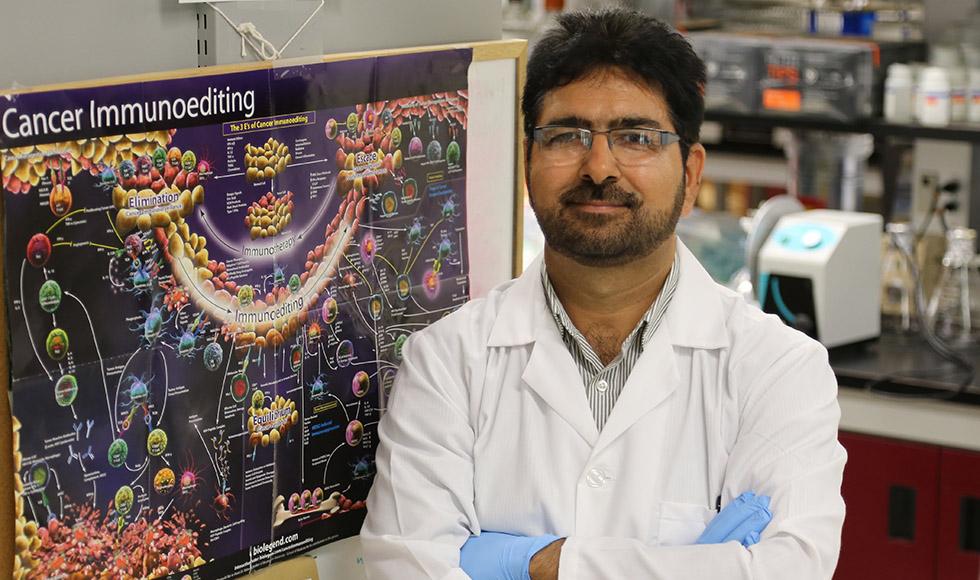Stored, ‘frozen’ cord blood contains natural killer cells to battle breast cancer

Ali Ashkar – professor with the Department of Pathology and Molecular Medicine
BY Tina Depko, Health Sciences
January 2, 2018
McMaster University researchers have found cord blood that has been stored through freezing for long periods of time has the potential to be used as a treatment for breast cancer.
The research comes as McMaster health scientists seek additional medical opportunities for frozen, or cryopreserved, cord blood currently in storage around the world, since this reservoir is most commonly used for stem cell transplants.
The results were recently published in The Journal of Immunotherapy.
“It is important to explore ways we can utilize the vast quantities of long-term cryopreserved cord blood and understand its full potential as a therapeutic product,” said Ali Ashkar, corresponding author and professor of the Department of Pathology and Molecular Medicine with McMaster’s Michael G. DeGroote School of Medicine.
Comparing 10.5- and 2.5-year-old cryopreserved blood to fresh cord blood, researchers derived what are called ‘natural killer’ cells. This is a type of white blood cell that is important in eliminating tumour and virus-infected cells.
Based on experimentation conducted outside of the human body, known as ex vivo, researchers measured the ability to generate vast quantities of activated natural killer cells and their effectiveness in destroying breast cancer cells.
The results showed long-term cryopreservation had no negative effect on the expansion potential or function of the activated cord blood natural killer cells. The research also indicated these cells had a particular effectiveness in attacking primary breast cancer cells.
“We demonstrated it is possible to obtain an exponential amount of natural killer cells from older cryopreserved cord blood,” said Ashkar. “This makes it a viable source of cells for the advancing field of natural killer cell cancer immunotherapy, especially as it applies to breast cancer.”
There are currently more than 600,000 units of cord blood stored globally, with that number expected to increase as storage technology develops. To date, there have been approximately 30,000 cord blood transplants performed.
“Cord blood can be stored at birth so that in the event it is needed, it can later be used to help treat the child,” said Tina Nham, lead author of the study and a second-year McMaster medical student “This study demonstrates that instead of discarding cord blood samples when the child is grown, cord blood can be cryopreserved and later harnessed as an immunotherapy with the potential to treat a variety of illnesses including breast cancer.”
“It is unclear what happens to publicly- or privately-banked cord blood samples that are stored for extensive periods of time,” said Ashkar. “We suggest the ability to store cord blood samples that maintain functionality after decades of cryopreservation, as this raises the possibility of housing vast, diverse and long-lasting donor libraries where readily available sources of therapeutic natural killer cells can be harvested.”
Additional authors on the study came from McMaster University’s Department of Pathology and Molecular Medicine, McMaster Immunology Research Centre and the Nationwide Children’s Hospital in Columbus, Ohio.


